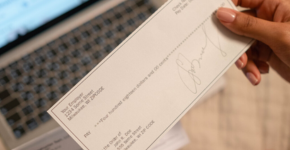
- Membership
- Certification
- Events
- Community
- About
- Help
What happens when you make a payment or issue a refund, but it’s never received? Perhaps it was lost in the mail, the company went out of business, or they changed banks and the transaction couldn’t be processed.
Whatever the reason, it’s important you know what to do in situations like these. You can’t just write the payment or credit off and keep it, and states are becoming increasingly aggressive in requiring compliance with their unclaimed property laws.
In this issue, we offer some guidance about managing the challenges of unclaimed property and escheatment.

This month’s question:
Please share a particular challenge you had with unclaimed property and explain how you handled it. If you could do it over again, what would you do differently?
 Complying with states’ unclaimed property provisions is tough. Each state has its own regulations, and the lookback periods can necessitate long record retention requirements. Discover the latest trends for managing UP.
Complying with states’ unclaimed property provisions is tough. Each state has its own regulations, and the lookback periods can necessitate long record retention requirements. Discover the latest trends for managing UP.
 Does your AR department have a written escheatment policy? Included should be who has responsibility for managing the process, plus what information should be collected on all untaken credits, unapplied cash and uncashed refund checks.
Does your AR department have a written escheatment policy? Included should be who has responsibility for managing the process, plus what information should be collected on all untaken credits, unapplied cash and uncashed refund checks.
 If you pay vendors through electronic methods such as Zelle, what do you do when such a payment is not accepted? Do the rules pertaining to unclaimed property and escheatment still apply? Find out what to do in these situations.
If you pay vendors through electronic methods such as Zelle, what do you do when such a payment is not accepted? Do the rules pertaining to unclaimed property and escheatment still apply? Find out what to do in these situations.
 States are targeting companies for unclaimed property audits, self-audits, compliance reviews, and voluntary disclosures. Join IOFM and Unclaimed Property experts on April 10th for this free webinar which will cover what risks this poses to a company, and what it means from the perspective of the accounts payable and accounts receivable functions.
States are targeting companies for unclaimed property audits, self-audits, compliance reviews, and voluntary disclosures. Join IOFM and Unclaimed Property experts on April 10th for this free webinar which will cover what risks this poses to a company, and what it means from the perspective of the accounts payable and accounts receivable functions.
What are you waiting for?
